The new boredom
Rob Horning refers to this as the new boredom — a state of watching-togetherness.
We’re interested because others are watching, and the feed allows us to enter a state of pure reaction, in the moment, together. But because feeds are usually live, we come to them expecting a surprise. Something could go wrong. The continuous feed feeds our need to watch, but also to bear witness, to capture, and to judge.
These are politicized spaces, where it’s easy to find bias, bigotry, hate speech, and injustice. As our tolerance for surveillance increases, what it means to watch has shifted. In the new boredom, Horning says, we desire a sort of ‘god’ view as a collective subject, becoming the they who does the observing, instead of the me being seen.
But keeping us watching is part of the deal. Pure, passive consumption — that somehow, at the same time, feels active and powerful. A reverse panopticon, where we participate in the very structures that oppress.
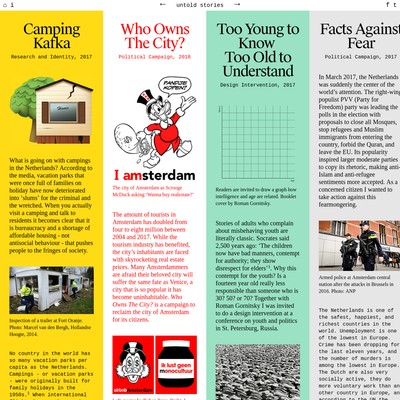 untold stories
untold stories
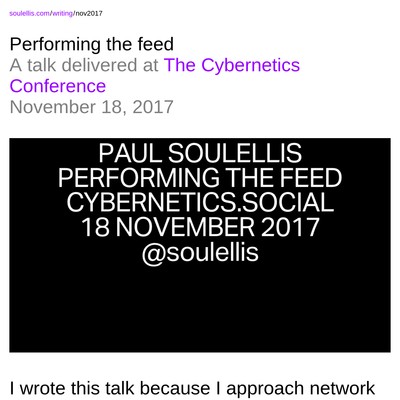 soulellis.com/writing/nov2017/
soulellis.com/writing/nov2017/
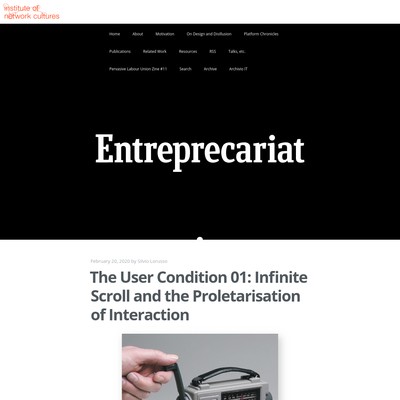
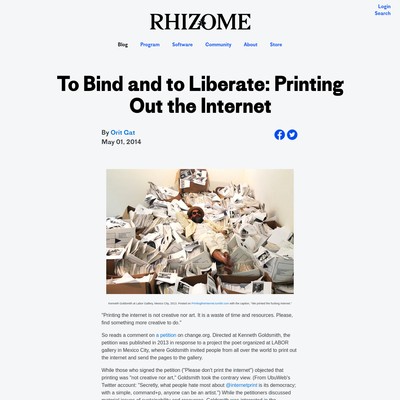 To Bind and to Liberate: Printing Out the Internet
To Bind and to Liberate: Printing Out the Internet
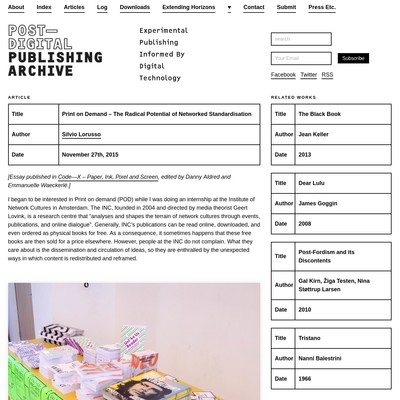 Print on Demand - The Radical Potential of Networked Standardisation | P-DPA
Print on Demand - The Radical Potential of Networked Standardisation | P-DPA
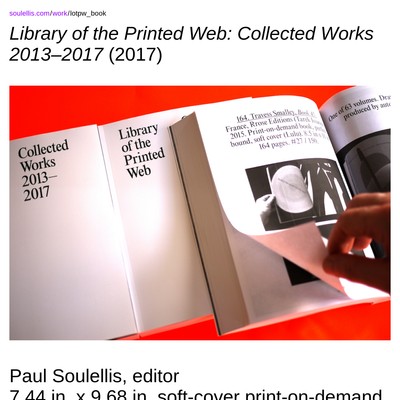 soulellis.com/work/lotpw_book
soulellis.com/work/lotpw_book